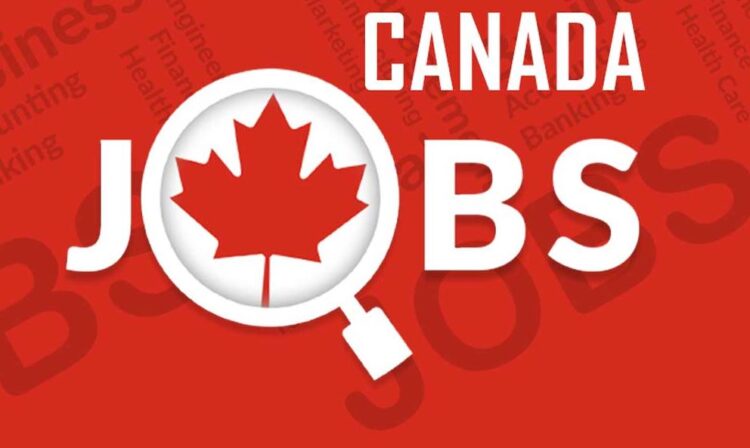It’s no secret that the job market is changing in Canada. In the past, there have always been opportunities for workers to find new jobs and switch industries, but the job market is now shifting in a way that makes this less attainable. With a lack of jobs in certain sectors, many people are finding themselves without work or facing difficult challenges in finding a new position. In this article, we’ll be taking a look at which jobs are currently in short supply in Canada and what you can do to prepare for them.
What Jobs are in Shortage in Canada?
There are many jobs in short supply in Canada right now, and some of the most in-demand positions include computer scientists, nurses, and engineers.
– Computer scientists are in high demand because they are responsible for developing and maintaining the software that runs businesses. They also need to be able to think outside the box and come up with new ideas.
– Nurses are in high demand because they are required to work in a variety of settings, including hospitals, clinics, schools, and homes. They need to have strong communication skills and be able to handle emergencies calmly.
– Engineers are also in high demand due to the growth of technology companies. They need to have good problem-solving skills and be able to work on complex projects.
The 5 Types of Jobs in Shortage in Canada 2024

There are 5 types of jobs in shortage in Canada 2024 according to the Canadian Chamber of Commerce:
- Agricultural jobs
- Health care jobs
- Construction jobs
- Manufacturing jobs
- Service jobs in restaurants and cafes
What to Do If You’re Unemployed in Canada?
If you’re unemployed in Canada and you’re not eligible for unemployment insurance, there are a few things you can do to find work.
– First, you can look online for job openings.
– Second, you can visit your local job center and go through the available listings.
– Third, you can contact companies directly and see if they are hiring.
– Fourth, you can start your own business.
If you’re already registered with a job search website like Indeed or Kijiji, start combing through the listings and looking for jobs that match your skills and experience. Remember to tailor your resume to the specific job opening you’re applying to.
If you don’t have any online listing or are not successful finding jobs through online browsing, head over to your local job center and start filling out applications. It’s important to be proactive in finding work as there may be more positions available than you think.
If all else fails, consider starting your own business. This is a great option if you have entrepreneurial skills and want to make money on your own terms. There are plenty of resources available online to help you get started. The leduc jobs board is a good place to start.
How to Find a Job in Canada?

If you’re looking for a job in Canada, there are a few things you need to do.
– First, use job search engines like Indeed or Jobber to find jobs in your area of interest.
– You can also try job boards or online job search tools.
– Next, you’ll need to create a resume that is tailored to the Canadian job market. Make sure to include keywords that are associated with the jobs you’re applying for.
– You can also include information about your experience and education in your resume.
– Finally, network with people who work in the industry you’re interested in. Attend career fairs and meetups where you can talk to potential employers and learn more about the jobs available in Canada.
Remember to keep your resume updated and always be prepared to interview for jobs. Employers are always looking for talented and qualified candidates.
What are the Best Future Jobs in Canada?

There are a variety of jobs available in Canada that will give you the opportunity to work in a variety of industries. Some of the best future jobs in Canada include:
– Accountants
– Architects
– Biotech scientists
– Business analysts
– Business owners
– Chartered accountants
– Clerks and administrative workers
– Computer programmers
– Dentists
– Dietitians and nutritionists
– Engineering managers
– Financial advisors
– Food technologists and engineers
– Graphic designers, etc.
The Pros and Cons of Moving to Canada for a Job

There are pros and cons to moving to Canada for a job.
Pros of moving include the high quality of life, great education opportunities, and low cost of living.
On the other hand, there are also some disadvantages to moving to Canada for a job.
– First, it can be difficult to find a job if you don’t have work experience in Canada.
– Second, the Canadian workforce is relatively small, so it can be difficult to find a job that matches your skills and talents.
– Third, the Canadian job market is constantly changing, so you may have to keep up with new technology or trends.
– Fourth, some jobs in Canada are only available to Canadians.
– Fifth, the weather in Canada can be cold and rainy in some parts of the country, which can be difficult to cope with if you’re from a warm climate.
Conclusion

Looking for a job in Canada in 2024? According to The Conference Board of Canada, six out of ten jobs in the country are expected to be in short supply. If you’re interested in working as a doctor, nurse, engineer or scientist, you’ll be OK. But if you want to work as a salesperson or accountant, your odds are not looking so good. According to the report, the most in-demand occupations include health practitioners and technical workers such as technicians and engineers. So if you’re thinking about moving to Canada soon and want to know what jobs will be available when you get there, this report is definitely worth reading.

